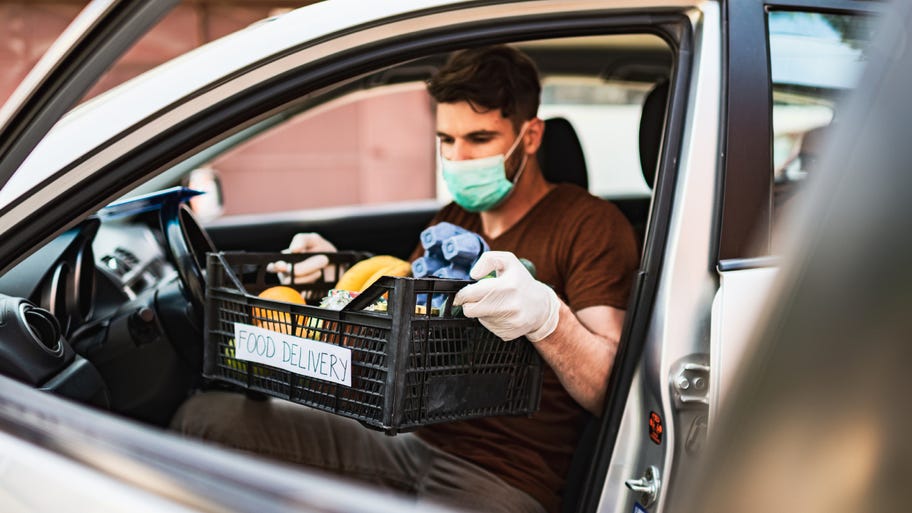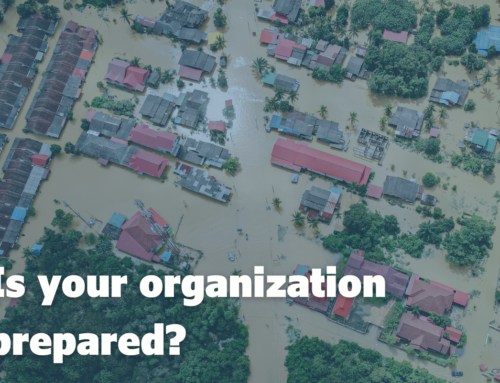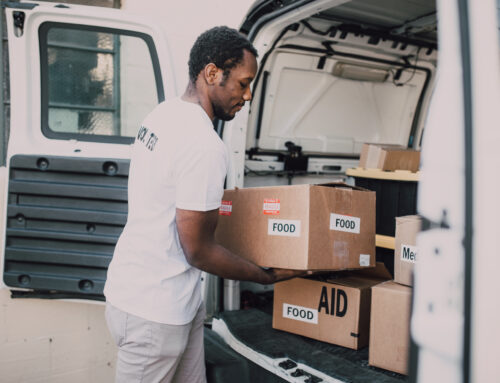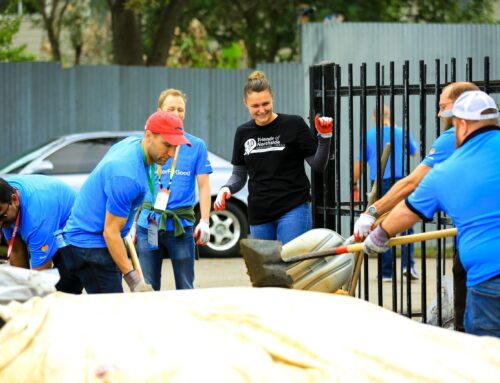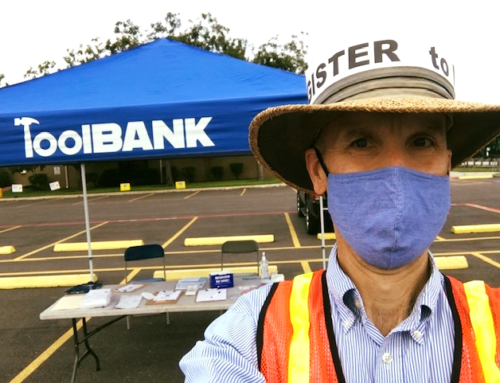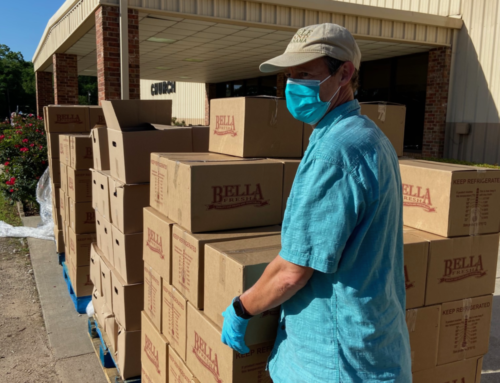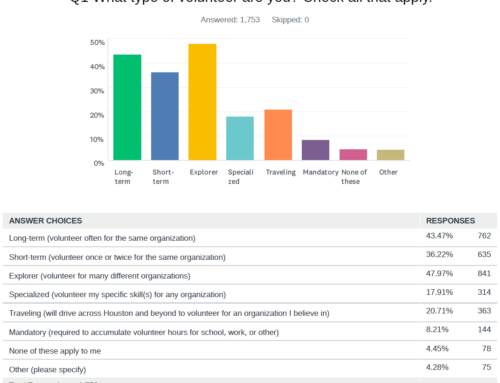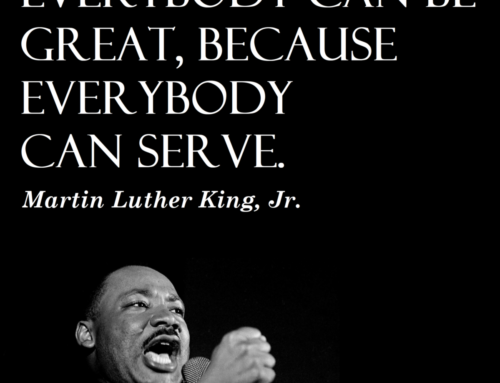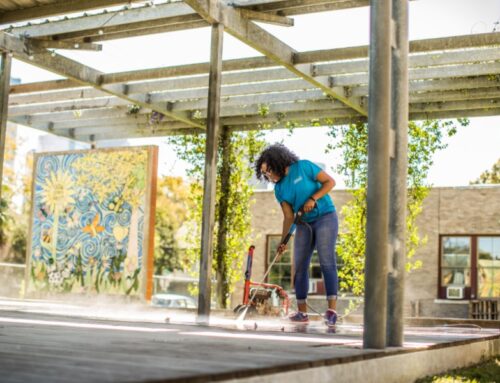Volunteer Using Your Car
Written by Lena Borrelli and re-posted with permission from Bankrate.
There’s no denying that America is hurting due to the coronavirus pandemic. Sickness and record unemployment have left a devastating impact on Americans everywhere. School and business closures have disrupted everyday routine and left the future largely uncertain. Federal measures like the eviction moratorium and the distribution of stimulus checks provide some help, but federal assistance is unpredictable.
The Robert Wood Johnson Foundation did a five-part study on the coronavirus’s impact, and the results are sobering. It serves to put a face on the real Americans who have been, and still are, affected by this pandemic:
- Major cities: At least half of all households within the four largest metropolitan areas of the U.S. — New York City, Los Angeles, Chicago, and Houston — report severe financial trouble, with many depleting their savings and unable or struggling to pay medical bills.
- Households with medical needs: About 20% of U.S. households have been unable to receive serious medical care, with 57% reporting negative health impacts from the lack of access. More than one-third of U.S. households with a disability face significant financial difficulties, including the ability to afford food and utilities.
- Families with children: About 36% of U.S. families with children are having trouble affording their children’s education. Nearly one in five working households (18%) has significant childcare issues.
- Rural households: Almost half of the households in rural areas have had their regular income or employment disturbed by coronavirus. Two-thirds (66%) report serious financial difficulties. The survey notes that rural communities are especially affected due to “long-standing systemic health and social inequities.”
It doesn’t take much to lend a helping hand these days. If you’re in a position to help and have a car, there are lots of opportunities to help.
Benefits of volunteering
Coronavirus has brought sudden and unexpected changes to everyone’s way of life, but we have also seen the human spirit’s power and resilience. America has always been a country built on helping your neighbor, especially in times of crisis, and coronavirus has been no different.
In addition to the help for others that volunteer work provides, there are also many benefits for those who volunteer.
Professional benefits
Community service is an important initiative for many companies. When interviewing for a new position, employers often look for candidates with volunteer experience. Plus, volunteer work says a lot about your character; it shows employers that you can be a team player and will jump in to help when needed.
Educational benefits
Community service and volunteering can also help when applying for educational opportunities, such as an accelerated high school program or undergraduate and graduate college programs. Admissions departments tend to look favorably at applicants who contribute to their communities.
Social benefits
In addition to natural opportunities for networking, volunteering can also be a fun way to expand your social circle and meet new people who share your interests. You will get to know neighbors from your community, and there are often opportunities for local or extended travel.
Mental health benefits
When you volunteer, you help yourself as much or more than you help others. The Harvard School of Public Health reports that those who volunteer spend 38% fewer nights in the hospital each year. Volunteering has also been shown to reduce stress and fight depression in Americans of all ages, leading to lower stress levels.
Ways to volunteer using your car
Concerns about contact are understandable during the COVID-19 pandemic, but for those who own or have access to a vehicle, there are many opportunities to help those in need, regardless of comfort level with human contact.
Close contact
- Deliver meals: These days, not everyone can venture out to the store or a restaurant. Some individuals are more susceptible to illness than others, and high-risk individuals have to be diligent about minimizing exposure to other people. Shopping in a grocery store may prove too risky, and not everyone has the budget or access to get groceries delivered. Delivering meals to those who might not otherwise have access to food, such as seniors, those with disabilities and other high-risk individuals is a great way to volunteer your time. If you can stay for a friendly chat, your visit could also provide meaningful social interaction to someone who hasn’t seen many people for the past year. Meals on Wheels is the most widely known organization that organizes food delivery, but your community may also have other organizations dedicated to providing meals for those in need.
- Animal rescue and transportation: Many pet owners have to face the difficult decision to give up their furry friends to save money as unemployment climbs, and savings dwindle. While most communities have several shelters that can help, these organizations also face shortages of funds and volunteers. If you love animals, stop by your local shelter to ask how you can help, such as picking up rescued animals, giving them a ride to foster homes or vet appointments or spending time at the shelter.
- Rides for seniors: Public transportation can be risky during the pandemic, and many seniors are unable to afford Uber or Lyft on their limited incomes. Volunteers can help provide safe rides for higher-risk people by partnering up with a local volunteer organization. For example, the National Volunteer Transportation Center has options to provide seniors with door-to-door, door-through-door or stay-at-destination assistance, which allows the volunteers and the seniors the chance to determine that appropriate level of contact.
- Medical care transport: Medical appointments are especially critical during this time, but getting to them may not be easy. Organizations are looking for volunteers with cars, vans and trucks to help people of all ages make it to their health appointments. Wings of Hope is one popular organization for U.S. medical transport, even offering flights by volunteer pilots.
- Visiting isolated seniors: For seniors in isolation, coronavirus is particularly lonely when normal interaction is severely limited. If you test negative for coronavirus or have taken an approved vaccine, you can volunteer to spend time with seniors in their homes, nursing facilities or retirement homes.
- Driver safety volunteer: A unique way to volunteer is to become a driver safety instructor. Through organizations like AARP, you will receive training to become a driver safety instructor in your community to help train people to drive more safely.
Little-to-no contact
- Deliver blood products: You can use your car to deliver critical, life-saving blood products to hospitals, medical offices and other health facilities. If you work as a volunteer transportation specialist for the Red Cross, you’ll even receive access to a Red Cross-owned vehicle to use while you’re volunteering.
- Donate your car: If you have a vehicle that you no longer need or use, consider donating it to charity to help the less fortunate. You can also volunteer behind-the-scenes at these organizations, serving as a customer support specialist or driver.
- Become an organ donor: As of February 2021, the U.S. government reports that there are more than 107,00 men, women, and children who are all on the national transplant waiting list. Donating an organ could save another person’s life, especially during the coronavirus pandemic when resources are already so limited.
Ways to volunteer virtually
If you prefer to stick close to home, the digital age has made it possible to volunteer and do good from the comfort of your couch.
- United Nations Volunteers: United Nations Volunteers (UNV) gives you the chance to work with the United Nations and become a part of over 50 member states. Volunteers can work on political, humanitarian and peacekeeping efforts worldwide or right here in the U.S.
- Translators Without Borders: Volunteer your language skills by becoming a translator for various global needs with Translators Without Borders. If you’re bilingual or multilingual, you can help translate a variety of documents from medical texts to crisis response.
- Crisis text line: Mental health is a serious concern given the increase of stress and isolation from coronavirus. Crisis support lines are in significant need of volunteers who can help provide trained counseling and support to those suffering. Phone hotline support is common, but these days, support via text is becoming more common.There are many types of crisis support lines, but two particular organizations have put out calls for help. The Trevor Project is one of the leading support resources for LGBTQ youth to end teen suicide and instead provide life-saving crisis support. The National Sexual Assault Hotline, RAINN, is also a national hotline but is dedicated to victims of sexual violence.
- TED translate: TED translators can get involved by subtitling TED talks into 115 different languages. Not only does this make TED talks more visible to a broader audience, but you can also help to ensure that visitors who are deaf or hard-of-hearing can benefit from the critical information that these videos deliver.
Driving requirements
When accepting new volunteers, organizations have a responsibility to the people they serve to ensure that their volunteers are safe. When you use your car to volunteer, there will likely be certain requirements you need to meet before you can get started.
- Valid driver’s license: If you are driving as part of your volunteer work, you will be required to maintain a valid driver’s license from the state you live in. This ensures that you know how to operate a vehicle and that you are well-versed in the rules of the road. Driving without a license is subject to penalties and points on your driving record, which can also raise the cost of your car insurance.
- Good driving record: Volunteer organizations will also look at your driving record to understand how safely you drive. If you have a lot of accidents, violations or DUIs on your record, you will likely be ineligible to drive for an organization. In this case, something home-based could be a better fit for you.
- Insurance and registration: It is illegal to operate a motor vehicle without valid registration, and you must show proof of valid registration when driving for an organization. Most states also require drivers to carry a minimum amount of auto insurance to cover any damages or losses resulting from a car accident. You may have to show proof of the policy to a volunteer organization before you begin.
